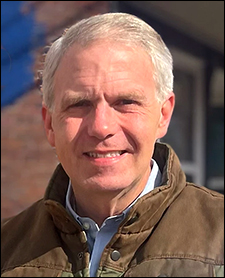By Jim Ellis — Thursday, Jan. 11, 2024
Senate
Mississippi: Brandon Presley Won’t Run — Former Public Service Commissioner Brandon Presley (D), who held Gov. Tate Reeves (R) to a 51-48 percent re-election victory in November, said he will not challenge Sen. Roger Wicker (R) later this year, but indicated that his time in politics is not yet over. This could mean he is already laying the groundwork to again run for governor in 2027 when the position will be open. Presley is a second cousin to the late “King of Rock ‘n’ Roll” singer Elvis Presley. Gov. Reeves will be ineligible to stand for a third term. With Mississippi candidate filing closing today, it is unlikely the Democrats will field a strong candidate against Sen. Wicker.House
CA-20: Special Election Scheduled — Gov. Gavin Newsom (D) announced that the special election to replace resigned Rep. Kevin McCarthy (R) will be held on March 19, two weeks after the California state primary on March 5. Therefore, two candidates will advance to the regular general election before the special vote is held. Under California election law, if no candidate receives majority support in the first election, a runoff between the top two finishers will be held at a later date. Gov. Newsom has scheduled the potential runoff for May 21.
CA-20 is the safest Republican seat in California. State Assemblyman Vincent Fong (R-Bakersfield) is favored to succeed Rep. McCarthy. His strongest competitor appears to be Tulare County Sheriff Mike Bourdeaux (R).
IN-6: Rep. Greg Pence (R) to Retire — The House retirement drumbeat continues; another announcement comes from three-term Rep. Greg Pence (R-Columbus), brother of former Vice President Mike Pence. Saying it is an “honor and privilege” to serve the people of Indiana’s 6th Congressional District, Pence stated that he decided he would not seek a fourth term. The House open seat count now ticks upward to 44. Four of these races will be decided in special elections before the regular election.
The 6th District will remain in Republican hands. The FiveThirtyEight data organization rates the seat as R+37, making it the safest Indiana seat for the GOP. A majority of the Hoosier State Republican delegation (4 of 7) will not be seeking re-election. Reps. Victoria Sparts (R-Noblesville), Larry Bucshon (R-Evansville) and Pence all are retiring. Rep. Jim Banks (R-Columbia City) is running for the Senate.
NY-26: Mayor Won’t Run — Five-term Buffalo Mayor Byron Brown (D) announced that he will not compete for what will be an open congressional seat headed for a special election. Rep. Brian Higgins (D-Buffalo) is resigning his office in February, at which point Gov. Kathy Hochul (D) will schedule a special election. Since the county party chairmen have the power to nominate candidates for special elections, it appears a lock that state Sen. Tim Kennedy (D-Buffalo) will be the Democratic candidate to replace Rep. Higgins. With a FiveThirtyEight data organization rating of D+18, Sen. Kennedy will become a prohibitive favorite to replace Rep. Higgins.
Governor
Vermont: Democratic Former Local Official Files — Despite running in one of the most heavily Democratic states, Republican Gov. Phil Scott consistently ranks as the most popular state chief executive in the country. While he has yet to announce that he will seek a fifth two-year term — Vermont and New Hampshire are the only states that limit their governors to two years between elections — former Middlebury Town Selectwoman Esther Charlestin this week announced that she will seek the Democratic gubernatorial nomination.
Should Gov. Scott decide to retire, the Democrats will have the inside track toward converting the State House. If he runs again, Gov. Scott becomes a prohibitive favorite.


